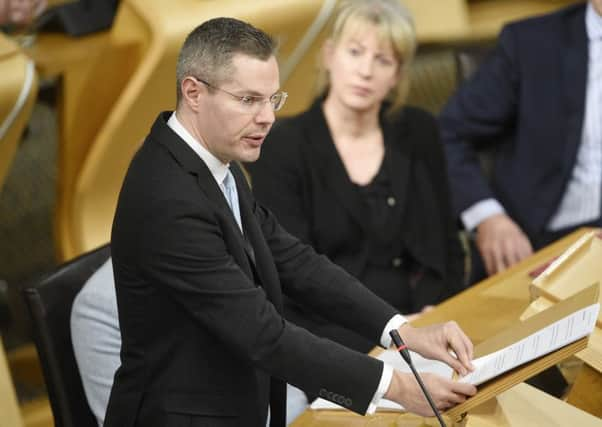Critics slam economic failures on SNP's '˜report card'


An official government document entitled “Scotland’s Performs”, released alongside the Budget, showed the SNP administration was performing worse in a series of key target areas.
The document divided areas into three categories: improving performance; performance maintained and performance worsening. Of 67 key indicators, 11 fell into the worsening category including government goals to increase exports, increase research and development spending, raise economic growth, reduce poverty and premature mortality, and increase educational attainment.
Advertisement
Hide AdAdvertisement
Hide AdA further 35 areas fell into the performance maintained category while 21 – including dental health, renewable electricity and reducing deaths on roads – came into the performance improving section.
Shadow finance secretary Murdo Fraser said: “Even when the SNP are marking their own report card they can’t get seem to get a good grade.
“This is a poor record from a government which is drifting in many areas, and failing in others. It is particularly troubling that their performance is especially poor on the economy.
“This is yet another reminder of the need for the SNP to prioritise economic growth first, second and last. Instead, we have a government which is doing the opposite, by telling hardworking Scots they must pay more in taxes.”
He added: “If they won’t listen to us, they should at least pay heed to the damning evidence of their own assessment.”
A Scottish Government spokeswoman said: “This claim fundamentally distorts the meaning of the Scotland Performs measures. On indicator after indicator, ‘performance maintained’ means that the Scottish Government is maintaining the rate of improvement or have already delivered on our ambitions.”
The spokesman added that improvements had been seen when it came to closing the gender pay gap, which had decreased by 1.48 percentage points since last year. The prevalence of smoking had decreased from 28 per cent of adults in 2003 to 21 per cent last year. And 92.0 per cent of school leavers were in positive destinations in 2015/16, compared with 91.5 per cent the previous year.